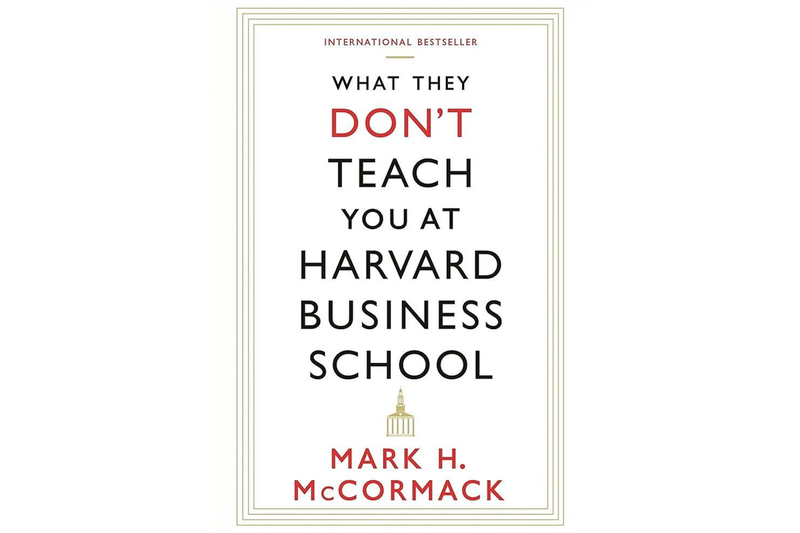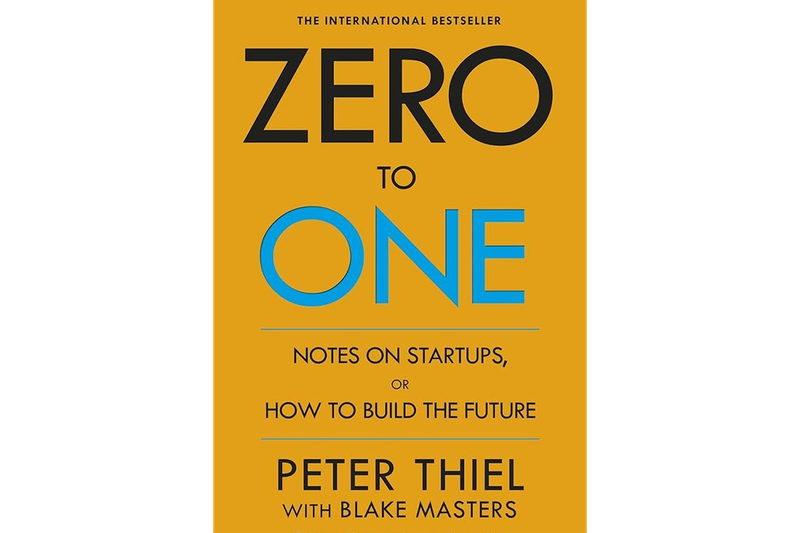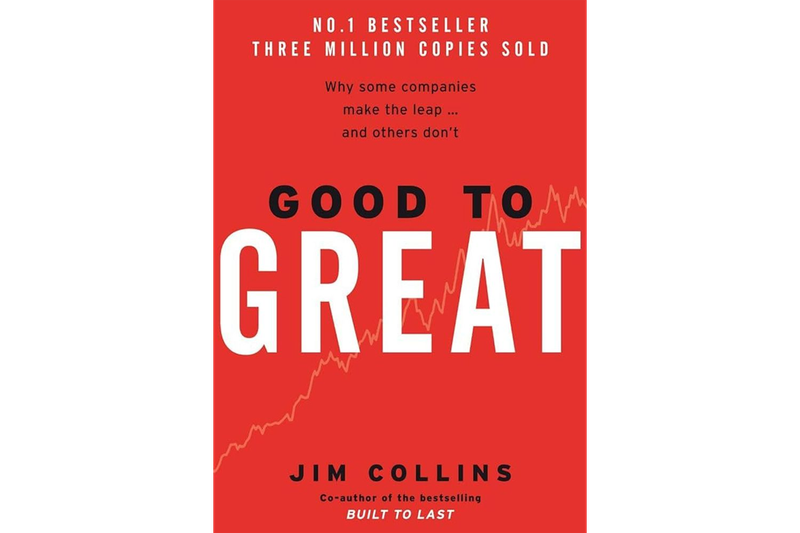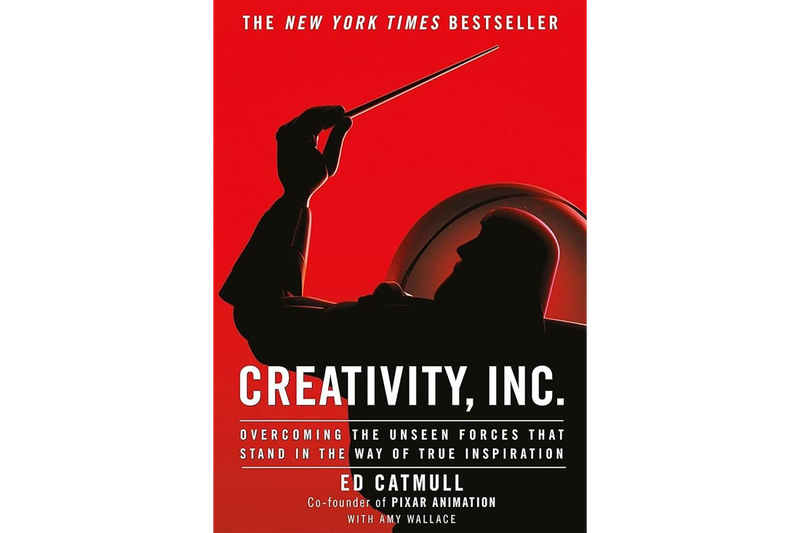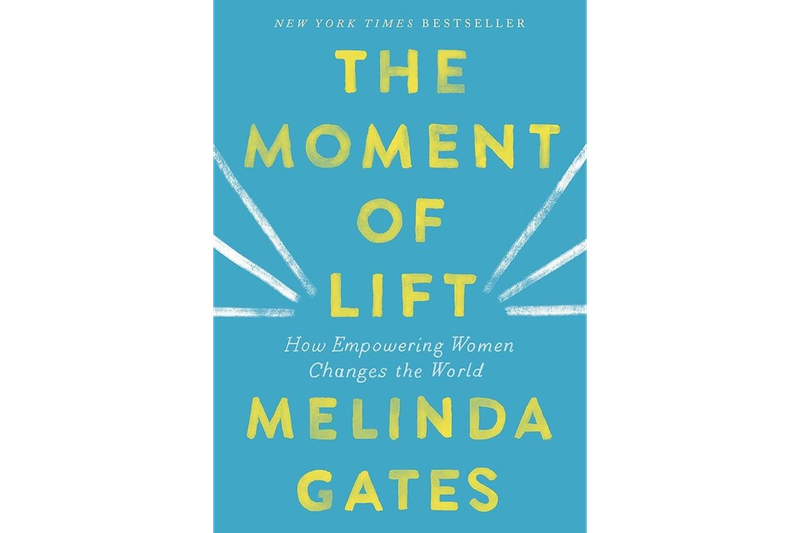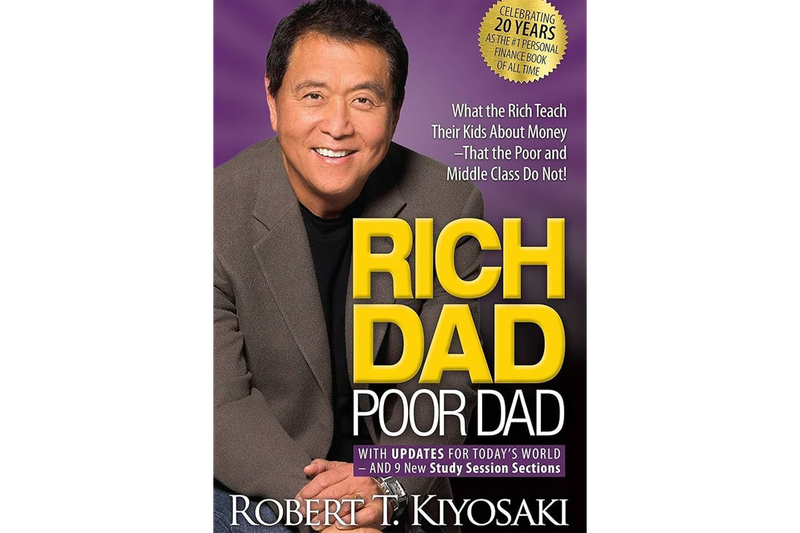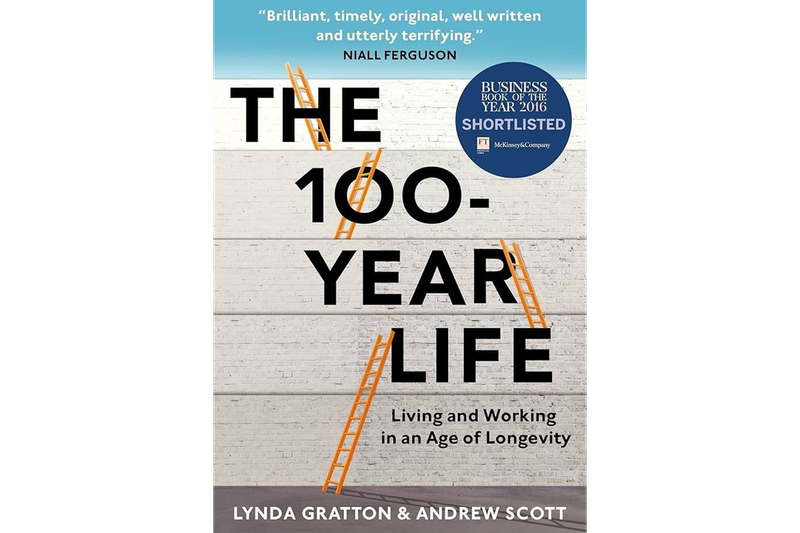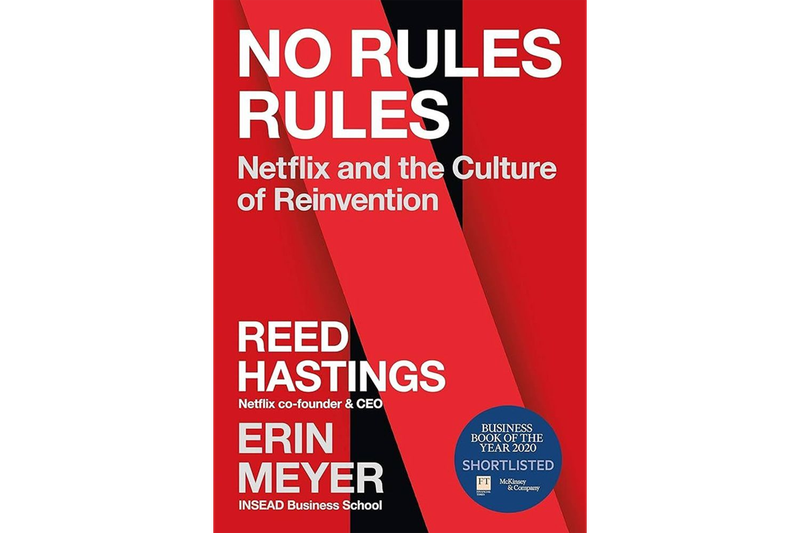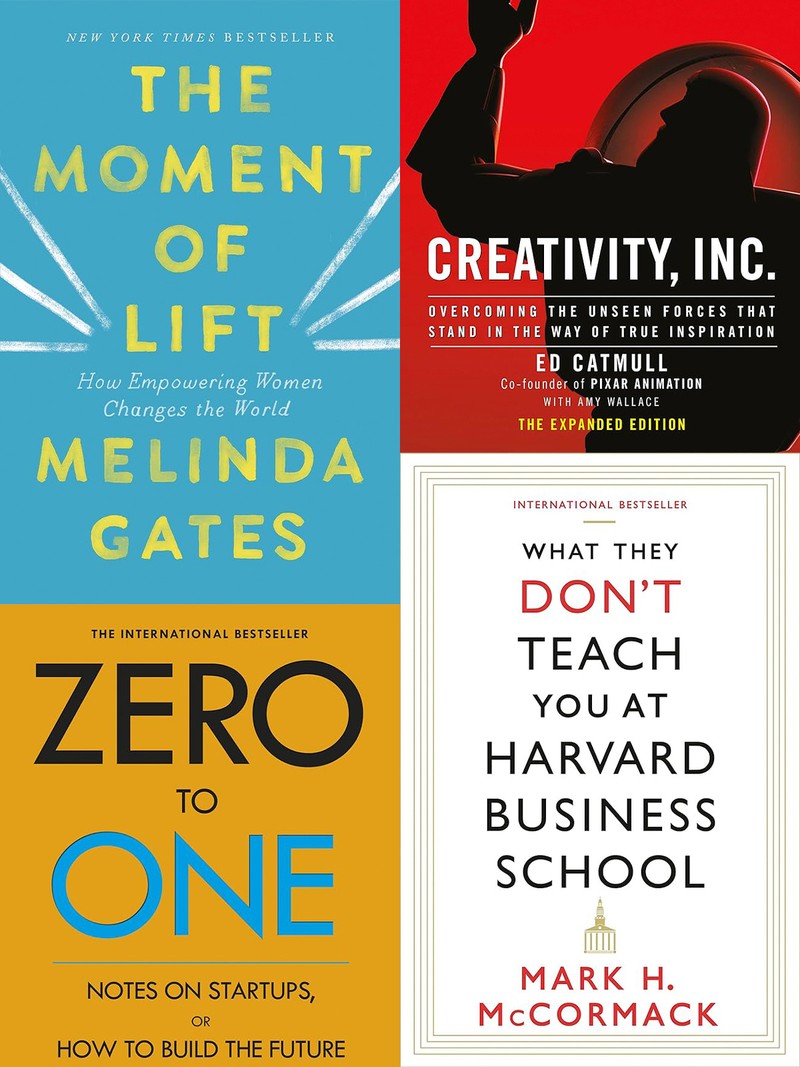
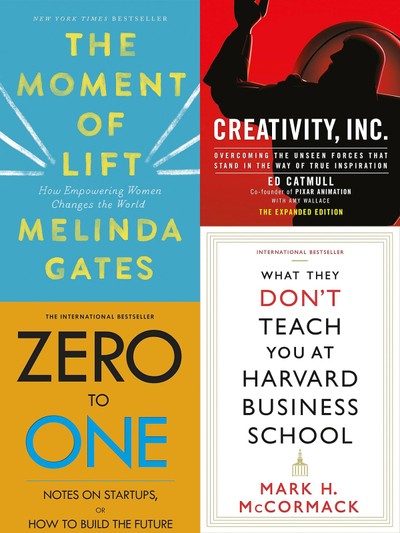
The Most Important Takeaways From The Biggest Business Books
What They Don't Teach You at Harvard Business School
By Mark H. McCormack
What They Don't Teach You at Harvard Business School provides practical insights and lessons for business professionals that go beyond traditional business education. McCormack, the founder of International Management Group (IMG), draws on his extensive experience in the sports management industry to share valuable advice on various aspects of business and leadership.
Key Takeaways:
- Street Smarts Over Book Smarts: McCormack emphasizes the importance of "street smarts" or practical knowledge over theoretical concepts taught in business schools. Real-world experiences and the ability to navigate complex situations often contribute more to success than academic qualifications alone.
- People Skills Matter: The author stresses the significance of interpersonal skills in the business world. Building relationships, effective communication, and understanding human behaviour are critical for negotiation, leadership, and overall success in any industry.
- Importance of Salesmanship: McCormack highlights the role of salesmanship in business success. Whether you are selling a product, service, or an idea, the ability to sell is a crucial skill that goes beyond traditional sales roles and permeates various aspects of professional life.
- Time Management: The book underscores the value of time management and the ability to prioritize tasks. McCormack advocates for focusing on high-priority, high-impact activities that align with overall goals rather than getting bogged down by low-value tasks.
- Risk-Taking and Decision Making: Taking calculated risks and making timely decisions are integral to business success. McCormack shares anecdotes and examples from his own experiences to illustrate the importance of decisiveness and risk management.
- Negotiation Skills: Negotiation is a skill that transcends business deals. The book provides insights into effective negotiation strategies, emphasizing the need to understand the other party's perspective and finding mutually beneficial solutions.
- Innovation and Adaptability: Businesses need to be innovative and adaptable to thrive in a constantly changing environment. McCormack encourages readers to embrace change, stay open-minded, and be willing to adapt their strategies to evolving circumstances.
- Brand Building: The author discusses the significance of personal and professional branding. Building a strong and positive reputation can significantly impact one's success in the business world.
- Learning from Mistakes: McCormack acknowledges the inevitability of making mistakes in business. However, he emphasizes the importance of learning from these mistakes and using them as opportunities for growth and improvement.
- Ethics and Integrity: Maintaining a high level of ethics and integrity is crucial in business. McCormack emphasizes the long-term benefits of honest and ethical business practices.
Overall Learning:
The book offers a refreshing perspective on business education, providing practical wisdom that can supplement traditional academic learning. McCormack's insights, drawn from his own experiences, offer a roadmap for success that encompasses people skills, adaptability, salesmanship, and ethical conduct. It serves as a valuable guide for both aspiring and seasoned professionals, encouraging them to develop a holistic skill set that goes beyond the confines of a formal business education.
Note: It's important to keep in mind that the publication date of this book is 1984, and the business landscape may have evolved since then. Nevertheless, many of the principles and lessons shared by McCormack remain relevant and timeless in the realm of business and leadership.
Available at Waterstones.com
Zero to One
By Peter Theil
Zero to One explores the principles of innovation and entrepreneurship, offering a contrarian perspective on building successful star-tups and creating a better future. Thiel, a co-founder of PayPal and an early investor in companies like Facebook, provides valuable insights derived from his experiences in the technology and business world.
Key Takeaways:
- Monopoly and Innovation: Thiel argues that true innovation comes from creating monopolies. Instead of competing in existing markets, entrepreneurs should focus on building something unique that has little to no competition—a "zero to one" moment.
- Avoiding Competition: Competition erodes profits. Thiel advises entrepreneurs to aim for monopoly-like domination rather than engaging in fierce competition. Building a distinctive product or service allows for higher pricing power and sustainability.
- The Power of Technology: Technology, according to Thiel, is the key driver of progress. Breakthroughs in science and engineering lead to transformative innovations that enable businesses to leapfrog existing competition and create entirely new markets.
- Secrets and Value Creation: Successful start-ups often begin with a secret—a unique insight or technology that others don't understand. Thiel emphasizes the importance of identifying and leveraging these secrets to create significant value and disrupt established industries.
- The Importance of Timing: Timing is critical in the success of a start-up. Being too early or too late can lead to failure. Thiel encourages entrepreneurs to focus on the timing of their innovations to ensure they align with market readiness.
- Vertical Progress vs. Horizontal Progress: Vertical progress involves going from zero to one, creating something new and unique. Horizontal progress, on the other hand, is going from one to one, replicating and expanding existing ideas. Thiel argues that vertical progress is more valuable and transformative.
- Building a Strong Team: Thiel emphasizes the significance of building a strong team. A successful startup requires a group of talented individuals who complement each other's skills and share a common vision.
- Long-Term Thinking: Successful entrepreneurs think long-term and invest in building durable, lasting companies. Thiel encourages entrepreneurs to focus on building a business that stands the test of time rather than seeking quick, short-term gains.
- Innovation in Education: Thiel challenges the conventional wisdom that everyone should go to college. He suggests that talented individuals with entrepreneurial ambitions might find more value in pursuing innovative projects and real-world experiences.
- Globalization and Technology: Thiel explores the relationship between globalization and technology, noting that while technology can empower individuals and create progress, globalization can sometimes hinder innovation by promoting conformity.
Overall Learning:
Zero to One provides a unique and thought-provoking perspective on entrepreneurship and innovation. Thiel challenges conventional wisdom, encouraging entrepreneurs to seek out undiscovered opportunities and create ground-breaking solutions. The book emphasizes the importance of differentiation, timing, and long-term thinking in building successful and enduring companies. Entrepreneurs and business leaders can gain valuable insights into how to navigate the complexities of the start-up world and create a future defined by innovation.
Available at Amazon.co.uk
Good to Great
By Jim Collins
Good to Great explores the factors that distinguish truly great companies from their good counterparts. Collins and his research team conducted a comprehensive study, examining the performance of various companies over a span of 30 years to identify patterns and characteristics that contribute to sustained excellence. The book outlines a framework for achieving greatness in business and leadership.
Key Takeaways:
- Level 5 Leadership: The concept of Level 5 Leadership is central to the book. Collins introduces the idea that the most effective leaders possess a combination of personal humility and professional will. They are ambitious for the success of the company rather than for personal glory.
- First Who, Then What: Building a great team is essential. Collins emphasizes the importance of selecting and developing the right people before determining the company's direction. Great companies focus on getting the right people on the bus and in the right seats before deciding on their strategy.
- Confront the Brutal Facts (Yet Never Lose Faith): Facing reality, no matter how harsh, is crucial for improvement. Great companies confront brutal facts about their current situation but maintain an unwavering faith that they will ultimately prevail. This combination of realism and optimism drives positive change.
- The Hedgehog Concept: The Hedgehog Concept revolves around the idea of focusing on what you can be the best in the world at, what drives your economic engine, and what you are deeply passionate about. Great companies find the intersection of these three circles and concentrate their efforts there.
- A Culture of Discipline: Discipline is essential for sustained success. Rather than relying on excessive rules and bureaucracy, great companies instil a culture of discipline where employees act with autonomy and responsibility. This disciplined culture helps maintain focus and consistency.
- Technology Accelerators, Not Drivers: Great companies view technology as an accelerator of their goals, not as a driver. They carefully select technologies that align with their Hedgehog Concept and enhance their competitive advantages rather than pursuing technology for its own sake.
- The Flywheel Effect: Collins introduces the concept of the flywheel, representing a consistent, cumulative effort in a single direction. Great companies understand that sustained success is a result of continuous, incremental improvements that eventually lead to breakthroughs.
- Clock Building, Not Time Telling: Great leaders focus on building enduring institutions rather than merely telling people what to do. They invest in creating a strong organizational culture and structure that can outlast any individual leader.
- Good is the Enemy of Great: Collins argues that settling for good can be a barrier to achieving greatness. Many companies become complacent with mediocrity, preventing them from reaching their full potential. Striving for continuous improvement and excellence is crucial.
- Disciplined Action: Great companies don't rely on flashy, short-term actions. Instead, they follow a disciplined and consistent path toward greatness, making decisions that align with their core values and long-term objectives.
Overall Learning:
Good to Great provides a roadmap for companies aspiring to achieve enduring greatness. Collins' research identifies timeless principles that go beyond industry-specific strategies. The book stresses the importance of leadership, team building, disciplined action, and a commitment to facing reality. It has become a seminal work in the business literature, influencing leaders and organizations worldwide. The principles outlined in the book continue to be relevant for those seeking sustained excellence in their respective fields.
Available at Amazon.co.uk
Creativity INC.
By Ed Catmull
Creativity, Inc. is a non-fiction book written by Ed Catmull, co-founder of Pixar Animation Studios and President of Pixar and Walt Disney Animation Studios. The book, published in 2014, provides insights into the management and creative processes at Pixar, offering lessons and principles that can be applied in various industries. Here's a detailed summary with takeaway points and learnings:
Summary:
The book is structured around various themes and principles that have been instrumental in shaping Pixar's success. Ed Catmull begins by emphasizing the importance of fostering a creative culture within an organization. He shares anecdotes and experiences from his career, detailing how Pixar evolved from a small group of passionate individuals to a major player in the animation industry.
- One key theme in the book is the idea of embracing failure as an essential part of the creative process. Catmull discusses the iterative nature of creativity and how mistakes and failures are inherent in pushing boundaries. He advocates creating an environment where individuals feel comfortable taking risks without fear of punishment.
- Another crucial aspect highlighted is the concept of the "Braintrust" at Pixar. The Braintrust is a group of individuals within the company who provide candid and constructive feedback on projects in development. This open and honest feedback mechanism is crucial for refining ideas and ensuring the quality of Pixar's films.
- Catmull also delves into the challenges of managing creative teams and navigating the balance between creativity and business interests. He stresses the importance of leadership that supports and empowers creative teams rather than stifling their potential. The book underlines the significance of creating an atmosphere where everyone feels heard and valued, regardless of their position in the hierarchy.
- The narrative also explores the merger of Pixar with Disney, shedding light on the cultural differences between the two companies and the strategies employed to maintain the creative integrity of both studios.
Key Takeaways:
- Embrace Failure: Understand that failure is an inherent part of the creative process. Learn from mistakes and view them as opportunities for improvement.
- Foster a Creative Culture: Create an environment that encourages open communication, risk-taking, and collaboration. A culture that supports creativity is essential for innovation.
- Braintrust Concept: Implement a feedback mechanism akin to Pixar's Braintrust, where honest and constructive criticism is valued and used to refine projects.
- Leadership Matters: Effective leadership is about empowering and supporting creative teams. Leaders should create an environment where everyone's voice is heard and respected.
- Balance Creativity and Business: Finding the right balance between creative freedom and business considerations is crucial for sustained success.
- Cultural Integration: When managing mergers or collaborations, pay attention to cultural differences and work towards integrating the strengths of each entity.
- Sustaining Innovation: Continuous innovation requires ongoing effort and a commitment to maintaining a culture that nurtures and values creativity.
In conclusion, Creativity, Inc. is not only a behind-the-scenes look at the animation industry but also a valuable resource for anyone interested in fostering creativity and innovation within their organization. Ed Catmull's insights provide practical lessons applicable to a broad range of industries and leadership scenarios.
Available at Amazon.co.uk
The Moment of Lift
By Melinda Gates
The Moment of Lift: How Empowering Women Changes the World delves into the importance of empowering women and the impact it has on both individuals and society as a whole. Here's a detailed summary with key takeaways and learnings:
Summary:
- The Power of Empowering Women: Melinda Gates argues that lifting up women and girls is not just a moral imperative but a strategic and practical approach for improving the well-being of communities and societies.
- Stories of Empowerment: The book is interspersed with personal stories and experiences from Melinda Gates' philanthropic work around the world, highlighting the transformative power of empowering women in diverse cultural contexts.
- Family Planning and Health: Gates emphasizes the significance of access to family planning as a key factor in women's empowerment. Providing women with control over their reproductive choices positively influences their health, education, and economic opportunities.
- Education for Girls: The book underscores the importance of education for girls as a means to break the cycle of poverty and empower future generations. When girls are educated, communities thrive.
- Economic Empowerment: Melinda Gates explores how economic empowerment, including access to financial resources and job opportunities, is a critical aspect of women's empowerment. When women have economic agency, families and communities prosper.
- Breaking Gender Norms: The Moment of Lift advocates for challenging and breaking down traditional gender norms and stereotypes that limit women's potential. Empowering women involves dismantling societal barriers and biases.
- Maternal and Child Health: Gates addresses the importance of improving maternal and child health outcomes by ensuring access to quality healthcare for women. Healthy mothers contribute to thriving communities.
- The Role of Men: The book acknowledges the crucial role men play in the empowerment of women. Engaging men as allies in the fight for gender equality is essential for creating lasting and meaningful change.
Key takeaways:
- Addressing Gender-Based Violence: Gates discusses the pervasive issue of gender-based violence and the urgent need to address and eliminate it. Empowering women involves creating safe environments free from violence.
- The Ripple Effect: The empowerment of women creates a positive ripple effect that extends beyond individuals to entire communities and societies. Melinda Gates argues that investing in women yields dividends for everyone.
- Holistic Empowerment: True empowerment involves addressing various aspects of women's lives, including health, education, economic opportunities, and the dismantling of gender norms.
- Global Perspectives: The book offers insights from diverse cultural contexts, emphasizing that women's empowerment is a global issue that requires tailored solutions.
- Intersectionality: Acknowledge the intersectionality of women's experiences, recognizing that factors such as race, ethnicity, and socio-economic background intersect with gender to shape women's opportunities and challenges.
- Men as Allies: Engaging men as allies in the pursuit of gender equality is crucial for creating a more inclusive and equitable world.
- Societal Transformation: Empowering women leads to positive transformations not only for individuals but for entire communities, contributing to social and economic development.
- Advocacy and Philanthropy: The book serves as a call to action for advocacy and philanthropy focused on women's empowerment, highlighting the potential for substantial positive change.
The Moment of Lift is a compelling exploration of the transformative power of empowering women. Through personal stories and global examples, Melinda Gates makes a compelling case for the urgent need to prioritize and invest in the well-being and agency of women, recognizing it as a key catalyst for positive change around the world.
Available at Waterstones.com
Rich Dad Poor Dad
By Robert Kiyosaki
Rich Dad Poor Dad is a personal finance classic that challenges conventional beliefs about money and wealth-building. The book revolves around the author's two "dads": his biological father (Poor Dad) and the father of his childhood friend (Rich Dad), both of whom had different approaches to money and financial success.
Key takeaways:
- Mindset Shift: Kiyosaki emphasizes the importance of developing a wealthy mindset. He argues that changing one's beliefs and attitudes about money is crucial for financial success.
- Assets vs. Liabilities: The book introduces the concept of assets and liabilities. Kiyosaki advises focusing on acquiring assets that generate income rather than accumulating liabilities that drain financial resources.
- Importance of Financial Education: The author stresses the significance of financial education and practical knowledge about investing, taxes, and money management. He argues that traditional education often lacks this crucial aspect.
- Entrepreneurship: "Rich Dad Poor Dad" encourages readers to consider entrepreneurship as a means of creating wealth. It advocates for taking calculated risks and thinking beyond the traditional 9-to-5 job.
- Work to Learn, Not for Money: Kiyosaki promotes the idea of working not just for a pay check but for the opportunity to learn and gain valuable skills that can be applied to building wealth.
- The Power of Assets: The book underscores the importance of building and acquiring income-generating assets such as real estate, stocks, and businesses to achieve financial independence.
- Financial Independence: "Rich Dad Poor Dad" advocates for achieving financial independence, where one's passive income exceeds their expenses, providing the freedom to choose how to live life.
- Wealthy Mindset: Kiyosaki highlights the significance of developing a mindset geared towards wealth creation. He argues that cultivating a positive attitude towards money is crucial for financial success.
- Assets vs. Liabilities: The book introduces the idea that assets are things that put money in your pocket, while liabilities are things that take money out. Kiyosaki advises focusing on acquiring income-generating assets, such as real estate, stocks, and businesses, instead of accumulating liabilities like cars and excessive consumer debt.
- Financial Education: Kiyosaki criticizes the traditional education system for not adequately teaching practical financial skills. He encourages readers to invest time and effort in gaining financial education, whether through self-study, seminars, or mentors.
- Entrepreneurial Mindset: "Rich Dad Poor Dad" promotes the entrepreneurial spirit, urging individuals to think beyond traditional employment. Kiyosaki believes that entrepreneurship provides greater control over one's financial destiny and encourages readers to embrace calculated risks.
- Working to Learn: Kiyosaki emphasizes the idea of working not just for the paycheck but also for the learning opportunities it presents. He encourages individuals to seek jobs or ventures that provide valuable skills and knowledge, even if the financial rewards may initially be lower.
- Importance of Passive Income: The concept of passive income is central to the book. Kiyosaki advocates for creating income streams that require minimal effort to maintain, allowing individuals to achieve financial independence where their passive income surpasses their expenses.
- Building Businesses and Investments: "Rich Dad Poor Dad" suggests that creating and managing businesses, as well as making informed investments, are key components of building wealth. Kiyosaki shares insights into his own experiences in real estate and entrepreneurship.
- Financial Independence: The ultimate goal proposed by the book is financial independence, where individuals have the freedom to choose how they spend their time without being bound to a traditional job. This independence is achieved by building and managing a portfolio of income-generating assets.
Rich Dad Poor Dad continues to resonate with readers worldwide for its unconventional wisdom and practical advice on achieving financial success. It challenges societal norms about money and encourages a proactive, informed, and entrepreneurial approach to building wealth.
Available at Amazon.co.uk
The 100-Year Life: Living and Working in an Age of Longevity
By Lynda Gratton and Andrew Scott
The 100-Year Life: Living and Working in an Age of Longevity is a ground-breaking exploration of the challenges and opportunities presented by the increasing life expectancy of individuals. The authors offer insights into how individuals, businesses, and societies can adapt to the prospect of living much longer lives. Here is a detailed summary with key takeaways and learnings:
- Longevity as a Double-Edged Sword: The authors argue that while increased life expectancy is a positive development, it also poses challenges, such as the need for individuals to plan for longer retirements and the potential strain on pension systems.
- The 100-Year Life Concept: The central idea of the book is that with advancements in healthcare and technology, many people will live to be 100 years old and beyond. This necessitates a reevaluation of traditional life structures, including education, career, and retirement.
- Education Throughout Life: Traditional education followed by a linear career may not be suitable for a longer life. The book suggests that individuals should engage in continuous learning and career reinvention throughout their lives to stay relevant in the changing job market.
- Multiple Career Phases: The authors propose the idea of a multi-stage life with breaks for education, leisure, and personal development. This approach allows individuals to have several careers and experiences across their extended lifespan.
- Financial Planning for Longevity: With the potential for longer retirements, financial planning becomes crucial. The book encourages individuals to start saving early, invest wisely, and consider alternative forms of income generation to sustain themselves in extended retirement.
- Flexibility and Adaptability: The 100-Year Life requires individuals to be flexible and adaptable. Embracing change, learning new skills, and being open to different career paths are emphasized as essential strategies for thriving in a longer life.
- Health and Well-being: The book stresses the importance of maintaining physical and mental health throughout life. Healthy lifestyles, preventive healthcare, and a focus on well-being become critical components of a successful and fulfilling extended life.
- Social Connections: Building and maintaining social connections are highlighted as integral to a fulfilling 100-year life. Networks of friends, family, and colleagues provide support and companionship throughout various life stages.
- Corporate and Societal Adaptations: Businesses need to adapt to an older workforce, offering opportunities for continuous learning and flexible career paths. Societal structures, including retirement age and healthcare systems, also need to evolve to accommodate the changing demographic landscape.
- Legacy and Meaning: The authors discuss the importance of finding meaning and purpose throughout the 100-year life. Leaving a legacy and contributing to society in meaningful ways can provide a sense of fulfilment and purpose.
In summary, the book challenges individuals and societies to rethink traditional life trajectories and embrace the opportunities presented by increased longevity. It advocates for continuous learning, flexibility, financial planning, and a focus on well-being to navigate the complexities of living and working in an age of extended lifespans.
Available at Waterstones.com
No Rules Rules: Netflix and the Culture of Reinvention
By Erin Meyer and Reed Hastings
No Rules Rules: Netflix and the Culture of Reinvention explores the unique organizational culture at Netflix, emphasizing freedom and responsibility. Co-authored by Reed Hastings, the company's co-founder, and Erin Meyer, the book delves into Netflix's unorthodox approach to talent management, decision-making, and innovation. Key takeaways include the emphasis on candid feedback, the elimination of formal performance reviews, and the cultivation of a culture that values employee autonomy. The book provides insights into how Netflix's culture of reinvention has contributed to its success in the ever-evolving entertainment industry.
- Radical Transparency: The book underscores Netflix's commitment to radical transparency, encouraging open communication and honesty at all levels. This transparency extends to sharing financial information and decision-making processes with employees.
- The Keeper Test: Netflix promotes the idea of managers regularly asking themselves if they would fight to keep a specific employee. If the answer is not a definite "yes," it prompts discussions about the individual's fit within the organization.
- Dynamic Talent Density: The concept of dynamic talent density emphasizes having only high-performing employees and encouraging others to improve or move on. This contributes to maintaining a workforce of top-tier talent.
- Adaptable Leadership: Leaders at Netflix are expected to be adaptable and continuously evolve. The book suggests that effective leadership involves a willingness to discard what worked in the past for what might work better in the future.
- Innovation through Experimentation: Netflix encourages a culture of experimentation and learning from failures. The company sees failures not as setbacks but as opportunities for growth and improvement.
- Context, Not Control: Rather than controlling employees, Netflix focuses on providing context. Employees are trusted to make decisions when armed with the right information, fostering a sense of ownership and responsibility.
- Global Perspective: The book delves into Netflix's global expansion and the challenges of managing diverse teams across different cultures. It emphasizes the importance of understanding local nuances in various markets.
- Evolving Benefits and Perks: Netflix continually reassesses its benefits and perks to align with employee needs and preferences. This flexible approach contributes to employee satisfaction and retention.
- Customer Obsession: Netflix maintains a relentless focus on understanding and satisfying customer needs. This customer-centric approach influences decision-making and innovation within the company.
- Continuous Learning: The culture at Netflix values continuous learning and encourages employees to acquire new skills. The company invests in training and development, contributing to a dynamic and adaptable workforce.
Available at Amazon.co.uk
DISCLAIMER: We endeavour to always credit the correct original source of every image we use. If you think a credit may be incorrect, please contact us at info@sheerluxe.com.
